c-MYC (PTR2340) Mouse mAb
- Catalog Number : AM4677
- Number : AM4677
-
Size:
Qty : - Price : Request Inquiry
General Information
| Reactivity | Human, Mouse, Rat | ||||||||||||
|---|---|---|---|---|---|---|---|---|---|---|---|---|---|
| Application | WB, IF, IHC, ELISA | ||||||||||||
| Host | Mouse | ||||||||||||
| Clonality | Monoclonal | ||||||||||||
| Conjugate | Non-conjugated | ||||||||||||
| Isotype | IgG2b,Kappa | ||||||||||||
| Immunogen | Synthesized peptide derived from human c-MYC AA range: 350-453 | ||||||||||||
| Molecular Weight | 48kD (Calculated) | 57kD (Observed) | ||||||||||||
| Storage buffer | PBS, 50% glycerol, 0.05% Proclin 300, 0.05%BSA | ||||||||||||
| Storage instruction | -15°C to -25°C/1 year(Do not lower than -25°C) | ||||||||||||
| Research topic | >>MAPK signaling pathway>>ErbB signaling pathway>>Cell cycle | ||||||||||||
| Alias | Myc proto-oncogene protein
Class E basic helix-loop-helix protein 39 bHLHe39 Proto-oncogene c-Myc Transcription factor p64 |
||||||||||||
| Recommended Dilution Ratio | IHC 1:200-1000; WB 1:500-2000; IF 1:100-500; ELISA 1:1000-5000 | ||||||||||||
| Specificity | This antibody detects endogenous levels of c-MYC protein. | ||||||||||||
| Purification | Protein G | ||||||||||||
| Gene Name | MYC BHLHE39 | ||||||||||||
| Protein Name | Myc proto-oncogene protein (Class E basic helix-loop-helix protein 39) (bHLHe39) (Proto-oncogene c-Myc) (Transcription factor p64) | ||||||||||||
| Database Link |
| ||||||||||||
| Background | v-myc avian myelocytomatosis viral oncogene homolog(MYC) Homo sapiens The protein encoded by this gene is a multifunctional, nuclear phosphoprotein that plays a role in cell cycle progression, apoptosis and cellular transformation. It functions as a transcription factor that regulates transcription of specific target genes. Mutations, overexpression, rearrangement and translocation of this gene have been associated with a variety of hematopoietic tumors, leukemias and lymphomas, including Burkitt lymphoma. There is evidence to show that alternative translation initiations from an upstream, in-frame non-AUG (CUG) and a downstream AUG start site result in the production of two isoforms with distinct N-termini. The synthesis of non-AUG initiated protein is suppressed in Burkitt's lymphomas, suggesting its importance in the normal function of this gene. [provided by RefSeq, Jul 2008]. | ||||||||||||
| Function | Disease:A chromosomal aberration involving MYC may be a cause of a form of B-cell chronic lymphocytic leukemia. Translocation t(8;12)(q24;q22) with BTG1.,Disease:Overexpression of MYC is implicated in the etiology of a variety of hematopoietic tumors.,Function:Participates in the regulation of gene transcription. Binds DNA both in a non-specific manner and also specifically to recognizes the core sequence 5'-CAC[GA]TG-3'. Seems to activate the transcription of growth-related genes.,online information:Myc entry,PTM:Phosphorylated by PRKDC.,similarity:Contains 1 basic helix-loop-helix (bHLH) domain.,subunit:Efficient DNA binding requires dimerization with another bHLH protein. Binds DNA as a heterodimer with MAX. Interacts with TAF1C and SPAG9. Interacts with PARP10. Interacts with KDM5A and KDM5B. | ||||||||||||
| Cellular Localization | Nuclear | ||||||||||||
| Validation Data |
Whole cell lysates of MDCK were separated by 12% SDS-PAGE, and the membrane was blotted with anti-C-Myc(PTR2340) antibody. The HRP-conjugated Goat anti-Mouse IgG(H + L) antibody was used to detect the antibody. Lane 1: MDCK | ||||||||||||
Whole cell lysates of NIH-3T3 were separated by 12% SDS-PAGE, and the membrane was blotted with anti-C-Myc(PTR2340) antibody. The HRP-conjugated Goat anti-Mouse IgG(H + L) antibody was used to detect the antibody. Lane 1: NIH-3T3 | |||||||||||||
Whole cell lysates of A549 were separated by 12% SDS-PAGE, and the membrane was blotted with anti-C-Myc antibody. The HRP-conjugated Goat anti-Mouse IgG(H + L) antibody was used to detect the antibody. Lane 1: A549 | |||||||||||||
Human prostate tissue was stained with Anti-c-MYC (PTR2340) Antibody | |||||||||||||
Human skin tissue was stained with Anti-c-MYC (PTR2340) Antibody | |||||||||||||
Human tonsil tissue was stained with Anti-c-MYC (PTR2340) Antibody |

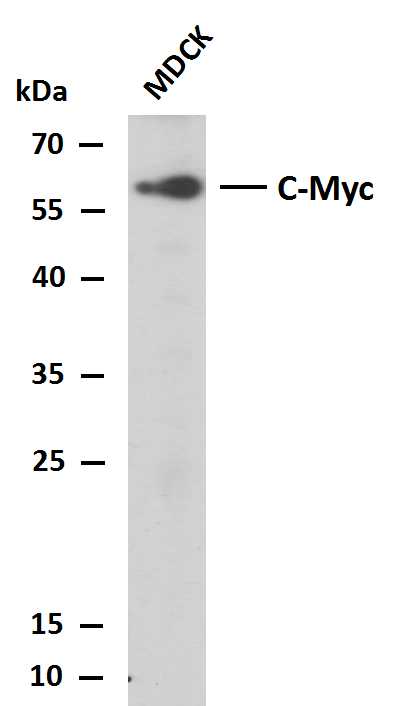
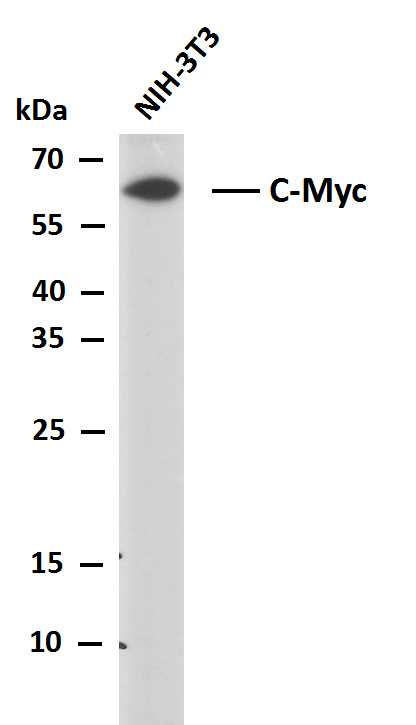
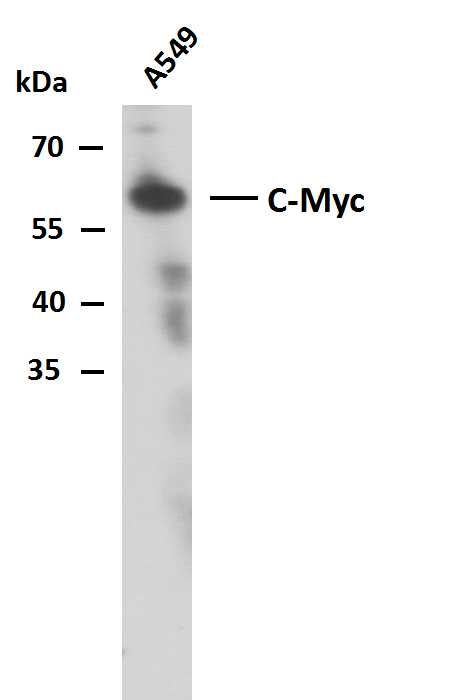
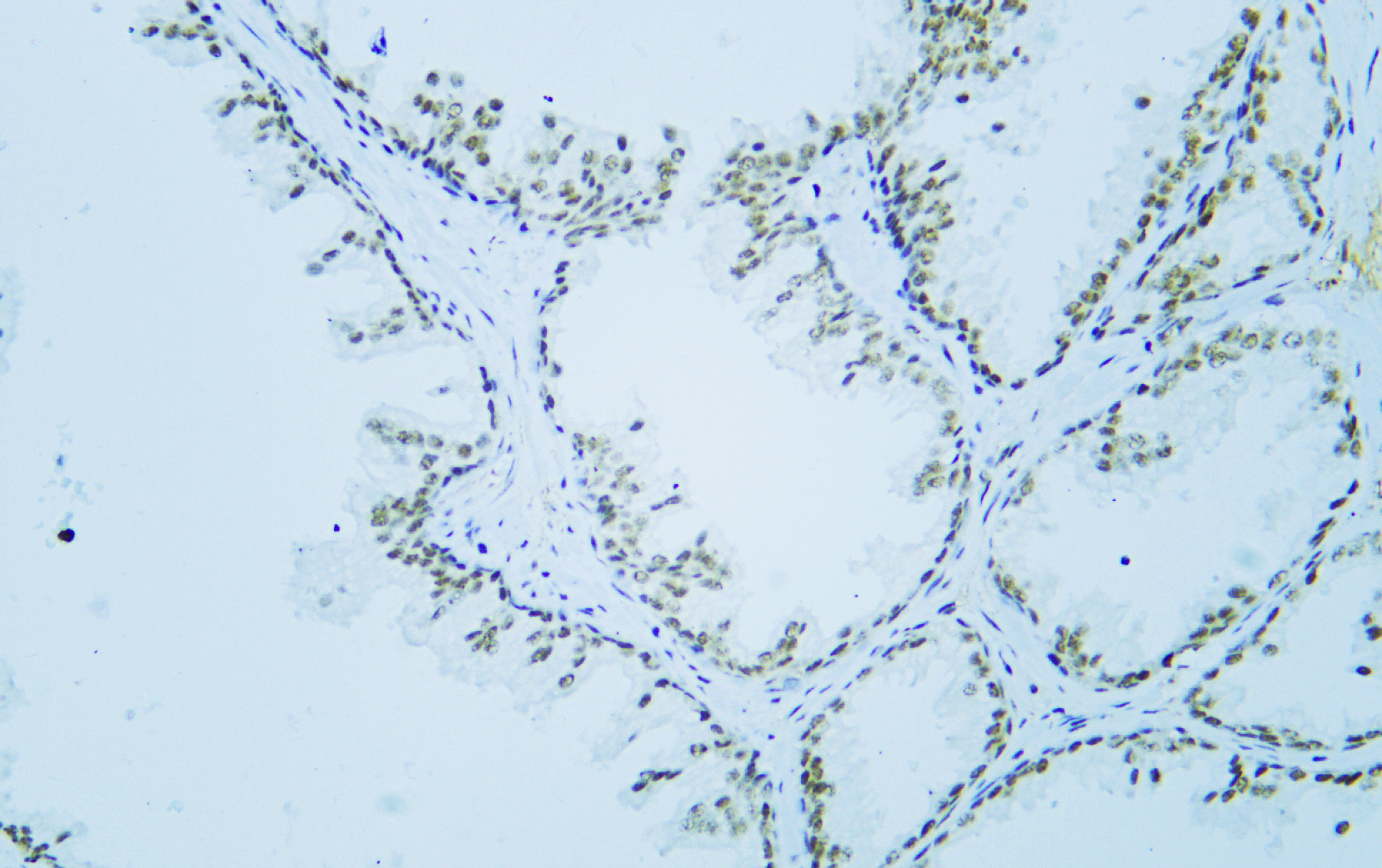
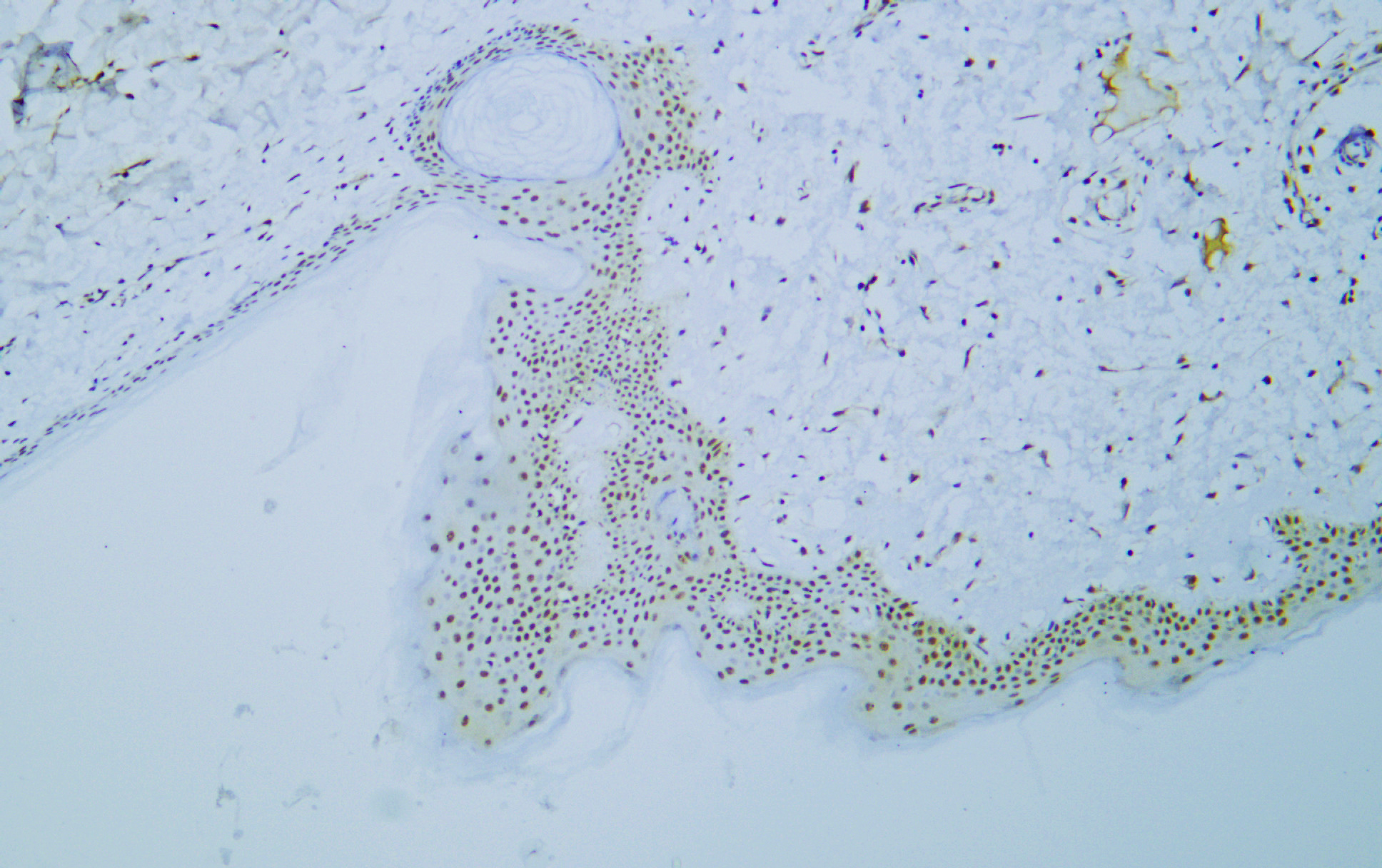
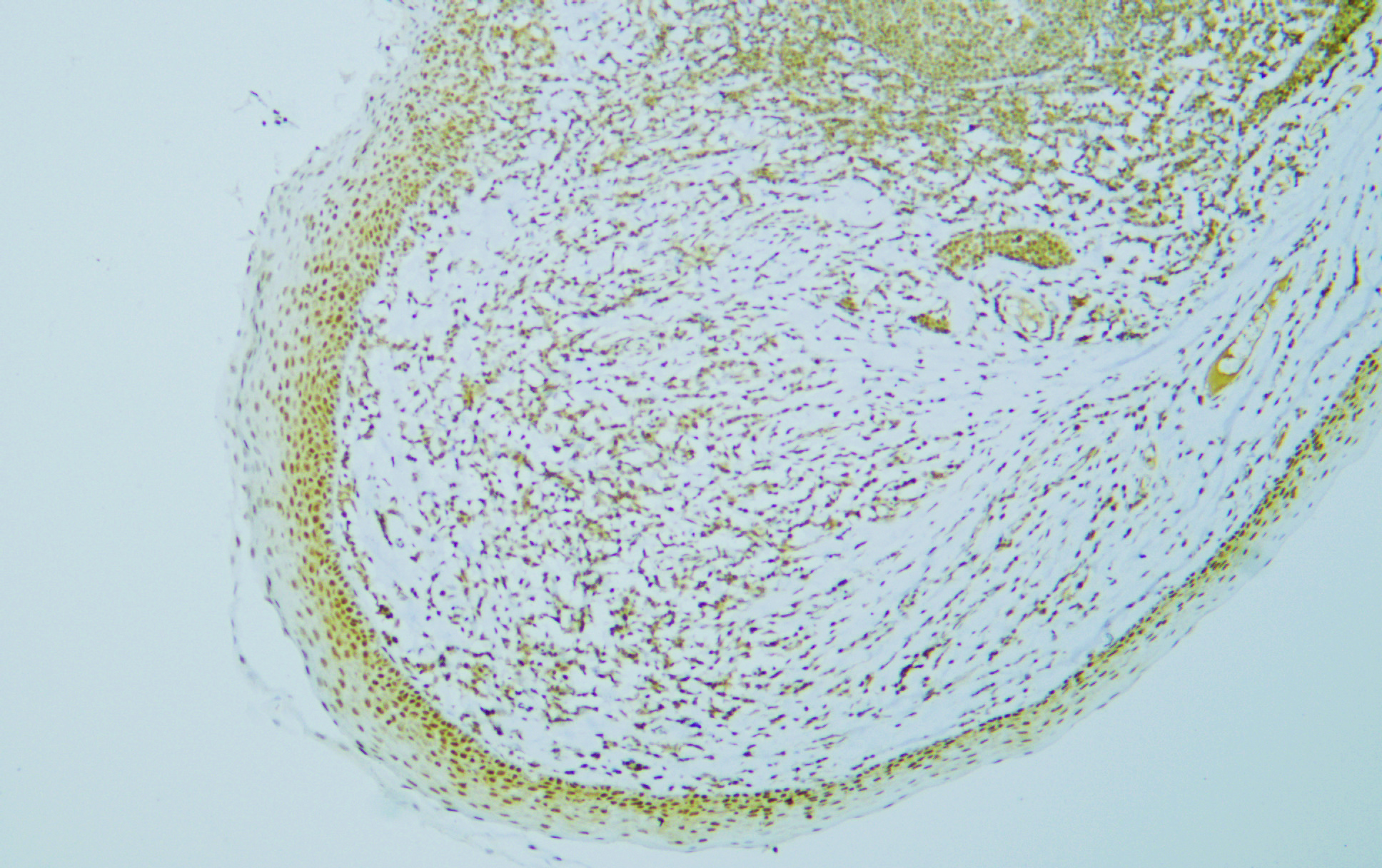











.png)